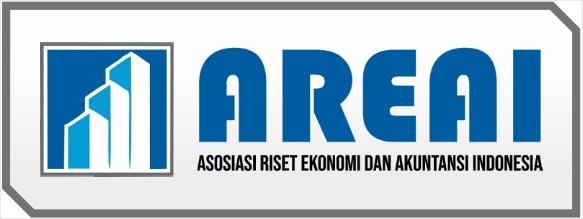Strategic Framing in Tax Communication: Reconsidering Policy Narratives Through Justice-Based Approaches
DOI:
https://doi.org/10.61194/economics.v3i2.646Keywords:
tax policy communication, framing effects, tax compliance, public perception, digital governance, institutional trust, behavioral economicsAbstract
This study explores the framing effects in tax policy communication and how they influence public perception, compliance behavior, and institutional trust across various political and cultural contexts. Framing refers to the strategic presentation of tax messages, which can significantly shape public understanding and attitudes. A structured narrative review was employed, synthesizing key empirical and theoretical contributions using targeted keyword searches across multiple databases, but without formal coding protocols as in a systematic review. Key search terms included "framing effects," "tax policy communication," "tax compliance," and "public perception of taxes." The review finds that justice-based framing—emphasizing fairness, social benefits, and moral responsibility—generates higher levels of tax compliance and public support. In contrast, framing taxes solely through economic efficiency tends to weaken public engagement. Contextual factors such as political ideology, media framing, and tax literacy strongly influence message reception. International comparisons further reveal that culturally adaptive framing strategies are more effective, particularly in participatory governance contexts. Despite promising findings, the literature lacks longitudinal studies and cross-cultural analysis. These results underscore the importance of developing tax communication strategies that are transparent, emotionally resonant, and tailored to diverse audiences. Policymakers are encouraged to integrate public feedback, expand tax education, and use digital platforms for interactive engagement. This study contributes to the field by identifying framing as pivotal in advancing equitable and sustainable tax systems.
References
Ababkova, M. Y., & Vasileva, O. (2020). System approach to evaluation of tourism cluster companies’ environment and performance. E3S Web of Conferences. https://doi.org/10.1051/e3sconf/202017510014 DOI: https://doi.org/10.1051/e3sconf/202017510014
Ahsan, A., Amalia, N., Rahmayanti, K. P., Adani, N., Wiyono, N. H., Endawansa, A., Utami, M. G., Yuniar, A. M., Anastasia, E. V., & Ayuning Pertiwi, Y. B. (2024). Political economy analysis of health taxes (tobacco, alcohol drinks and sugar-sweetened beverages): Qualitative study of three provinces in Indonesia. BMJ Open. https://doi.org/10.1136/bmjopen-2024-085863 DOI: https://doi.org/10.1101/2024.01.31.24302078
Amin, G., Siegel, M., & Naimi, T. S. (2018). National cancer societies and their public statements on alcohol consumption and cancer risk. Addiction. https://doi.org/10.1111/add.14254 DOI: https://doi.org/10.1111/add.14254
Berg, C. J., Ribisl, K. M., Thrasher, J. F., Haardörfer, R., O’Connor, J., & Kegler, M. C. (2015). Reactions to cigarette taxes and related messaging: Is the South different? American Journal of Health Behavior. https://doi.org/10.5993/ajhb.39.5.13 DOI: https://doi.org/10.5993/AJHB.39.5.13
Blaufus, K., Fochmann, M., Kirchler, E., Mohr, P. N. C., Olson, N. E., & Torgler, B. (2020). Tax policy measures to combat the SARS-CoV-2 pandemic and considerations to improve tax compliance: A behavioral perspective. FinanzArchiv: Public Finance Analysis. https://doi.org/10.1628/fa-2020-0014 DOI: https://doi.org/10.1628/fa-2020-0014
Brukało, K., Kaczmarek, K., Kowalski, O., & Romaniuk, P. (2022). Implementing sugar-sweetened beverages tax and its perception among public health stakeholders: A study from Poland. Frontiers in Nutrition. https://doi.org/10.3389/fnut.2022.957256 DOI: https://doi.org/10.3389/fnut.2022.957256
Calabrese, A., & Fenton, N. (2015). A symposium on media, communication, and the limits of liberalism. European Journal of Communication. https://doi.org/10.1177/0267323115597848 DOI: https://doi.org/10.1177/0267323115597848
Chitnis, M., & Hunt, L. C. (2011). Modelling UK household expenditure: Economic versus non-economic drivers. Applied Economics Letters. https://doi.org/10.1080/13504851.2010.496721 DOI: https://doi.org/10.1080/13504851.2010.496721
Daly, K., Fort, M. P., & Falbe, J. (2023). Framing and themes of the City of Boulder’s sugar-sweetened beverage tax coverage in the local news from 2016 to 2018. Ajpm Focus. https://doi.org/10.1016/j.focus.2023.100068 DOI: https://doi.org/10.1016/j.focus.2023.100068
Dare, C., Vellios, N., Kumar, P., Nayak, R., & van Walbeek, C. (2023). A media analysis of the COVID-19 tobacco sales ban in South Africa. International Journal of Environmental Research and Public Health. https://doi.org/10.3390/ijerph20186733 DOI: https://doi.org/10.20944/preprints202307.1429.v1
Dharshing, S., Hille, S. L., & Wüstenhagen, R. (2017). The influence of political orientation on policy framing effects' strength and temporal persistence. Ecological Economics. https://doi.org/10.1016/j.ecolecon.2017.05.014 DOI: https://doi.org/10.1016/j.ecolecon.2017.05.014
Dombi, M. (2019). The service-stock trap: Analysis of the environmental impacts and productivity of the service sector in Hungary. Environmental Research Letters. https://doi.org/10.1088/1748-9326/ab15be DOI: https://doi.org/10.1088/1748-9326/ab15be
Durán, I. A., & Saqib, N. (2024). Load capacity factor and environmental quality: Unveiling the role of economic growth, green innovations, and environmental policies in G20 economies. International Journal of Energy Economics and Policy. https://doi.org/10.32479/ijeep.17413 DOI: https://doi.org/10.32479/ijeep.17413
Etchart, N., Freire, J. L., Holland, M. B., Jones, K. W., & Naughton-Treves, L. (2020). What happens when the money runs out? Forest outcomes and equity concerns following Ecuador’s suspension of conservation payments. World Development. https://doi.org/10.1016/j.worlddev.2020.105124 DOI: https://doi.org/10.1016/j.worlddev.2020.105124
Fallin, A., Grana, R., & Glantz, S. A. (2013). ‘To quarterback behind the scenes, third-party efforts’: The tobacco industry and the Tea Party. Tobacco Control. https://doi.org/10.1136/tobaccocontrol-2012-050815 DOI: https://doi.org/10.1136/tobaccocontrol-2012-050815
García‐Murillo, M., & Vélez-Ospina, J. A. (2017). ICTs and the informal economy: Mobile and broadband roles. Digital Policy, Regulation and Governance. https://doi.org/10.1108/dprg-02-2016-0004 DOI: https://doi.org/10.1108/DPRG-02-2016-0004
Haruna, E. U., & Alhassan, U. (2022). Does digitalization limit the proliferation of the shadow economy in African countries? An in-depth panel analysis. African Development Review. https://doi.org/10.1111/1467-8268.12653 DOI: https://doi.org/10.1111/1467-8268.12653
Hout, W. (2018). The pedagogy of economic, political, and social crises. https://doi.org/10.4324/9781315161587 DOI: https://doi.org/10.4324/9781315161587
Inayati, T., Riantono, I. E., & Tjoe, T. F. (2019). Information and communication technology should be included in MSMEs' strategic planning in Indonesia. International Journal of Recent Technology and Engineering. https://doi.org/10.35940/ijrte.b1987.078219 DOI: https://doi.org/10.35940/ijrte.B1987.078219
Plekhanova, V., & Noonan, C. (2023). Strategic narratives in international tax policy making: BEPS Action one and the stability argument. Canadian Tax Journal/Revue Fiscale Canadienne. https://doi.org/10.32721/ctj.2023.71.2.plekhanova DOI: https://doi.org/10.32721/ctj.2023.71.2.plekhanova






